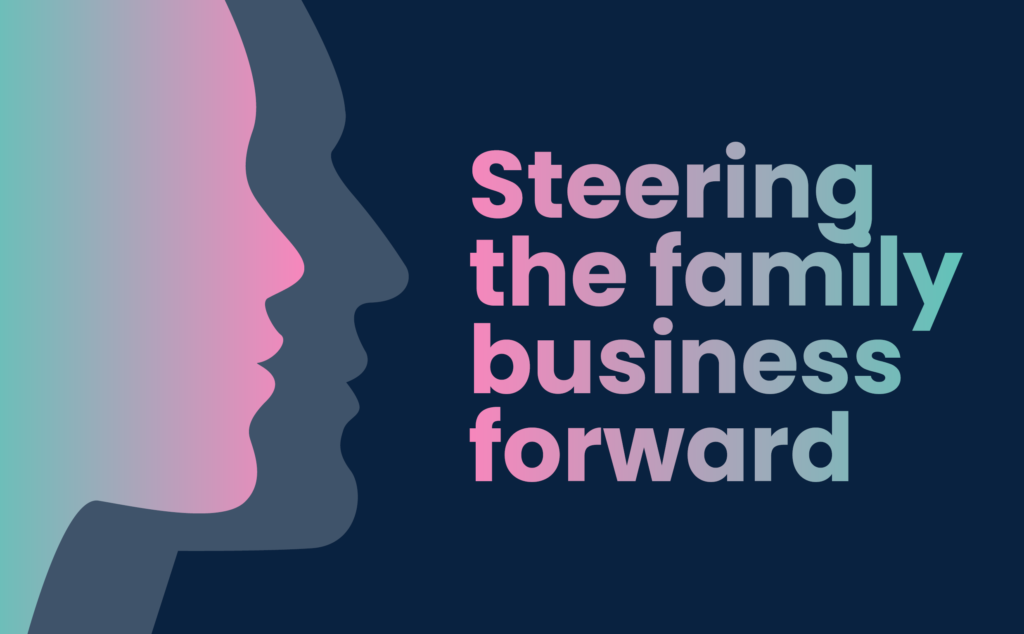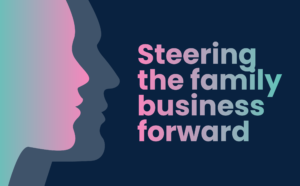
Interview with Paul Drechsler CBE, former CEO and Chair of Wates Group and former Chair of Bibby Line Group
Paul, you spent over two decades in a plc organisation before joining a family-owned business as chief executive. What inspired you to make the move into family business?
The short answer is Andrew Wates. At the time he was Chair of Wates Group – a third generation family business in the construction and property sector. Andrew talked to me about his passionate desire to pass the company on successfully to the next generation. The company needed a new vision and strategy to enable that transition and to overcome some of the financial challenges it was presented with.
These conversations coincided with a crossroads in my career. After 25 years in a plc I was considering my own future direction and this opportunity was one that was so multi-faceted and genuinely appealed.
This was a family business totally committed to the long term, to passing a bigger, better and more sustainable business to the next generation. But it was also committed to continuing to support the family foundation to make an impact on societal issues. A lot of that resonated with me. I very much liked Andrew and meeting the other family members confirmed that this was the right decision.
They invited me to be Chief Executive to help them move through the family transition, and as that progressed, they asked me take on the additional role of chairman while the next generation prepared for leadership.
It was a huge privilege and an honour and one that encouraged me to work with other family businesses, such as Bibby Line Group, and advise across executive and non-executive roles in other family-run companies.
As you reflect did you have any misconceptions or preconceptions about working for a family business?
My underestimation of the importance of family business to the UK economy was the most fundamental misconception. Until that point, I had gone through my career, as many do, believing that public companies were the most important to the economy. I quickly learned that family business makes up about 85 per cent of private sector companies, employing around 12 million people and contributing circa £150 billion in tax every year in the UK.
I think the sustainability of family business sector can be taken for granted. The success of maintaining a long-term multi-generational family business is remarkable. Only 8 per cent of family businesses get past the third generation. It’s a huge privilege to work in a family business, and unless you’ve worked in one you’re unlikely to truly understand the nature and character of it.
I saw the significance of the fact that no two families are the same, and no two children within those families. Do not expect there to be a general answer. Every family business is different. The huge variety of ownership models has a profound impact on the way a company develops. Each has individual character with its own vision and values.
Having worked in executive and non-executive roles in family business what would you say are the sector’s strengths? And equally its blind spots?
The big one – both a strength and a blind spot – is the importance placed on values. They are central to everything. They are authentic. They are honoured. And they are lived.
This unwavering commitment to a value set brings a significant sense of responsibility to society and, importantly, the local community. They like to be associated with making a difference in their community and society. It is very much part of the character.
But there are other fundamental characteristics that makes the sector so interesting and important. They need to have a longer-term view and tend to be more entrepreneurial and that brings lots of interesting opportunity for innovation embedded in longevity. However, access to capital and funding is often a challenge too. That can be a reason why some family businesses go public, or partially at least, to continue the business and gain access to much needed capital.
Leadership and governance must be highlighted at this point. Family businesses can organise themselves any way they want. The model is unique to each. And, if a model of no non-family board members has worked for several generations and decades, even centuries, transforming that model can be very tricky.
When joining a family business, it is absolutely vital that you get to know the people very well. They epitomise the values and its individual model and that is fundamental to understand. But that also applies to the next generation coming into the business. It is never too early to start preparing them. Engaging them emotionally and practically in the business is vital. Whether the next generation is going to work in the business or not, they do need to be brilliant shareholders. Therefore, everything that can be done to connect and develop them is a good investment.
Throughout your career what has been your mantra or driver?
When I consider how we evolve as individuals and leaders I am not sure one can always pinpoint exactly when you find your driver. For me, at a certain point I became persuaded by the principle of sustainable development. I believe that our future is based on finding the right balance between economic growth, environmental burden and social impact. And, as time goes on, this belief only grows.
A significant part of that is also how we look after those more disadvantaged or with greater needs than ours. The principle of finding a stable balance is what becomes the core foundation of sustainable development.
Entwined with this I believe that business is a force for good. We are living longer, and continuously lifting people out of poverty – since 1990 approximately 130,000 people every day globally. Business can make this positive change for individuals and societies.
And core to all of this is the paradigm best articulated by Nelson Mandela, who said: “Education is the most powerful weapon with which to change the world.” For me, that is fundamental – education has to be the most important priority on our agenda to bring about change.

Family businesses are integral to UK society and economy and play an enormous role in so many different industries every day. The business model requires leadership that balances entrepreneurship with stewardship, risk-taking with longevity: not an easy combination. At the very core of that is the focus on the people and a genuine commitment to culture and values, which cannot be underestimated.
Our interview series ‘Steering the Family Business’ brings views from leaders across family business in the UK – family and non-family, executive and non executive. We hope it will encourage shared learning whilst increasing awareness of this vital part of our business fabric.
Find out more about our Family Owned Business Practice
